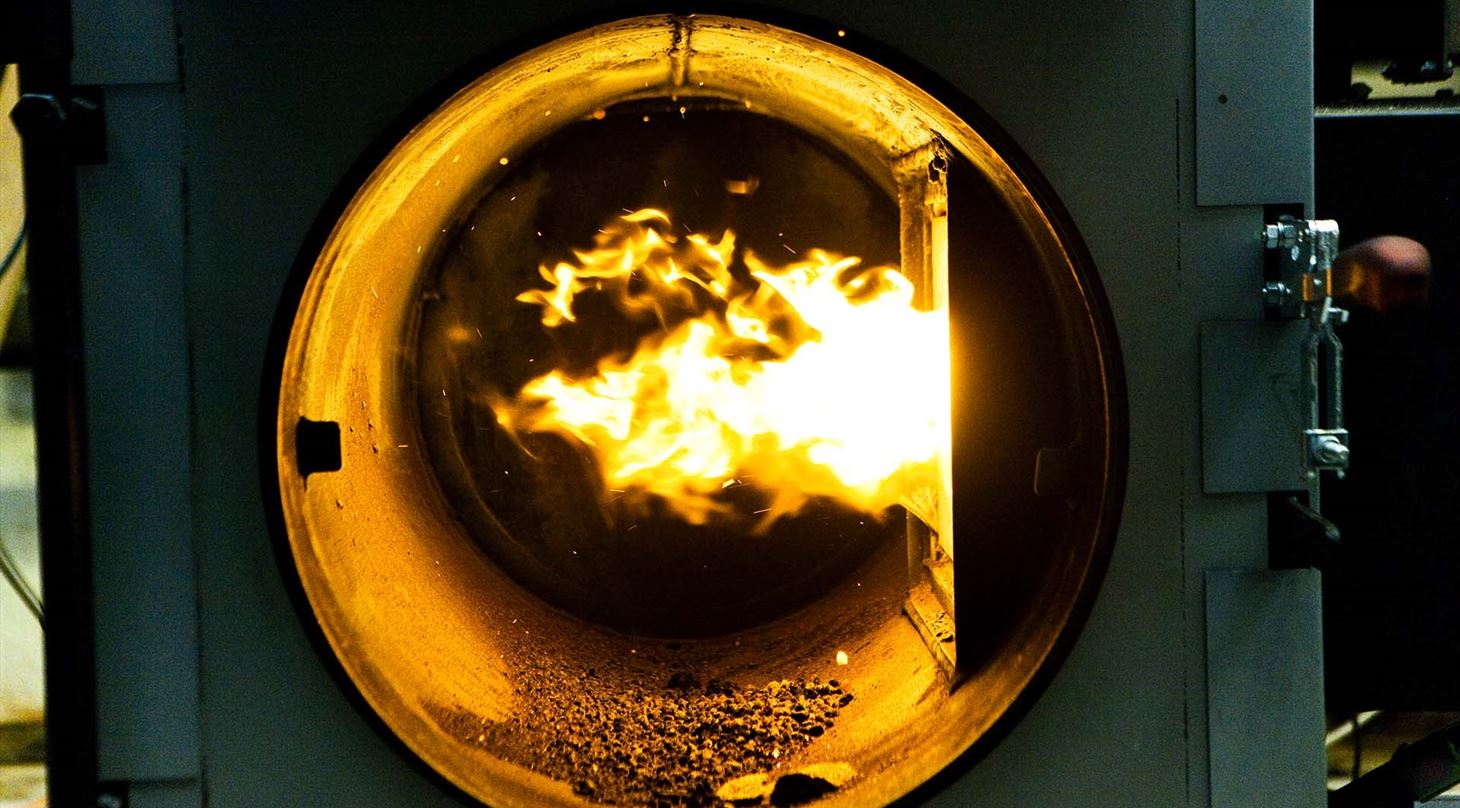
The boiler of the future emits almost no particles
Press release published on 28 October 2021. Updated/text revised 11. th. november 2021.
Electrostatic filter technology from wood-burning stoves can now be used in biomass boilers, reducing particle emissions by up to 96%.
In a project funded by the Danish Environmental Protection Agency, a Danish-designed electrostatic filter has demonstrated its ability to reduce particle emissions from biomass-fuelled boilers by up to 96%. The new filter technology involves a so-called electrostatic filter that adds an electric charge to the particles to capture them.
130,000 boilers in Denmark
In Denmark there are currently around 130,000 biomass-fuelled boilers, providing heating for Danish households, often in areas with no access to district heating. The boilers heat water for household taps and radiators. However unlike oil-fired boilers, they use biomass such as wood pellets. However, the burning emits particles and this is a significant contribution to the overall air pollution in Denmark.
That is why biomass boiler manufacturers have spent years developing more environmentally-friendly, energy-efficient boilers. Emissions from these boilers are now down to a level at which in practice it is difficult to reduce them further.
“If biomass boilers are to become cleaner than what the latest EU regulations demand, you have to think outside of the box. That’s why it is so positive that those of us working on this project have demonstrated that it we can reduce the particle emissions from the boilers by up to 96% by installing a special filter,” says Thomas Nørregaard Jensen, PhD, a specialist and project manager at Danish Technological Institute.
Inspired by wood-burning stoves
The development project has been headed by Danish Technological Institute, while PHX Innovation A/S, a filter manufacturer on the Danish island of Funen, is the brains behind the filter. The filter is a refined version of an existing technology from wood-burning stoves.
“We had previously developed a similar filter for wood-burning stoves, which reduced the emissions of ultrafine particles by 95%. We then decided to take a closer look at boilers, and we are pleased that we now have an efficient filter for biomass-fuelled boilers,” says René Mulvad, CEO of PHX Innovation A/S.
The new filter technology involves a so-called electrostatic filter, where the smoke passes by an electrode with a voltage of 20-30 kV. This adds an electric charge to the particles, making it possible to hold back and collect them.
During the two-year project, Danish Technological Institute conducted comprehensive tests on both the technology and condensing and non-condensing boilers made by NBE Production A/S and Scandtec A/S. Besides the control tests at the Institute’s accredited energy laboratory, the robustness and effectiveness of the filter were also monitored over the course of a private consumer’s heating season.
One step ahead when it comes to stricter requirements
At present, all biomass-fuelled boilers must meet certain EU requirements with regards to emission of particles. That is why Danish boilers do not emit more particles than they are allowed to. However, member states have the option of introducing stricter local requirements, which is exactly what countries such as Germany have done.
“Initially, the new filter will appeal to environmentally-conscious consumers who want to invest in improving air quality, thereby benefiting the climate. But one possible future scenario is that, once politicians realise that there is now a technology that almost entirely reduces particle emission from boilers, they will impose stricter requirements. In such a situation, this filter would be a great solution,” says Thomas Nørregaard Jensen of Danish Technological Institute.
PHX Innovation A/S expects the filter to be available during the first half of 2022.
The SHREK project (an acronym from the Danish name that translates as ‘Secondary highly efficient reduction of emissions from boilers’) is supported by the Danish Ministry of Environment’s Environmental Technological and Development and Demonstration Programme in collaboration with PHX Innovation A/S, Danish Technological Institute, NBE Production A/S and Scandtec A/S.
Read the final project report
Contact
- Thomas Nørregaard Jensen, PhD, specialist and project manager, Danish Technological Institute, tnje@teknologisk.dk, mobile (+45) 7220 3246
- René Mulvad, CEO, PHX Innovation A/S, rm@exodraft.dk, mobile (+45) 9189 0005